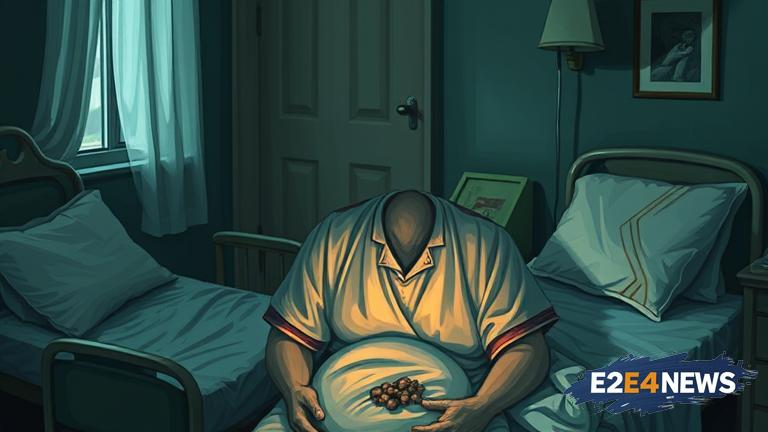A hospice nurse has come forward with extraordinary claims about the experiences of dying patients in her care. The nurse, who wishes to remain anonymous, has shared stories of patients who have reported seeing deceased loved ones, hearing voices, and experiencing vivid visions. These claims have sparked a heated debate about the nature of consciousness and the afterlife. The nurse’s accounts are based on her years of experience working in a hospice, where she has cared for countless patients in their final days. She describes the experiences as ‘common’ and ‘consistent’, with many patients reporting similar phenomena. The patients’ claims include seeing deceased family members, friends, and even pets, who are often described as being ‘waiting’ for them. Some patients have also reported hearing voices, which are often comforting and reassuring. The nurse believes that these experiences are not simply the result of a dying brain, but rather a genuine phenomenon that deserves further exploration. The scientific community is divided on the issue, with some experts attributing the experiences to neurological disorders or the effects of medication. However, others believe that the experiences may be evidence of a non-physical aspect of consciousness. The nurse’s claims have sparked a wave of interest in the topic, with many people sharing their own experiences of similar phenomena. The debate has also raised questions about the role of hospice care and the support that patients and their families receive during the dying process. The nurse’s accounts have been met with a mixture of skepticism and fascination, with some people hailing her as a pioneer in the field of end-of-life care. Others have criticized her for perpetuating ‘false hope’ and ‘misleading’ the public. Despite the controversy, the nurse remains committed to sharing her experiences and raising awareness about the complex and often misunderstood process of dying. She believes that by exploring these phenomena, we can gain a deeper understanding of the human experience and the nature of consciousness. The nurse’s work has also highlighted the importance of providing emotional and spiritual support to patients and their families during the dying process. This includes acknowledging and respecting the patient’s experiences, rather than simply dismissing them as ‘hallucinations’. The nurse’s accounts have also sparked a renewed interest in the concept of ‘near-death experiences’, which have been reported by countless individuals who have come close to death. These experiences often involve feelings of peace, joy, and a sense of detachment from the physical body. The nurse believes that by studying these experiences, we can gain a deeper understanding of the nature of consciousness and the human experience. The debate surrounding the nurse’s claims is likely to continue, with many experts and members of the public weighing in on the issue. However, one thing is clear: the nurse’s accounts have sparked a vital conversation about the complex and often misunderstood process of dying. As our understanding of the human experience evolves, it is likely that we will continue to uncover new and fascinating insights into the nature of consciousness and the afterlife. The nurse’s work is a testament to the importance of exploring these phenomena and providing emotional and spiritual support to patients and their families during the dying process. By doing so, we can gain a deeper understanding of the human experience and the nature of consciousness, and provide better care and support to those who are dying.





